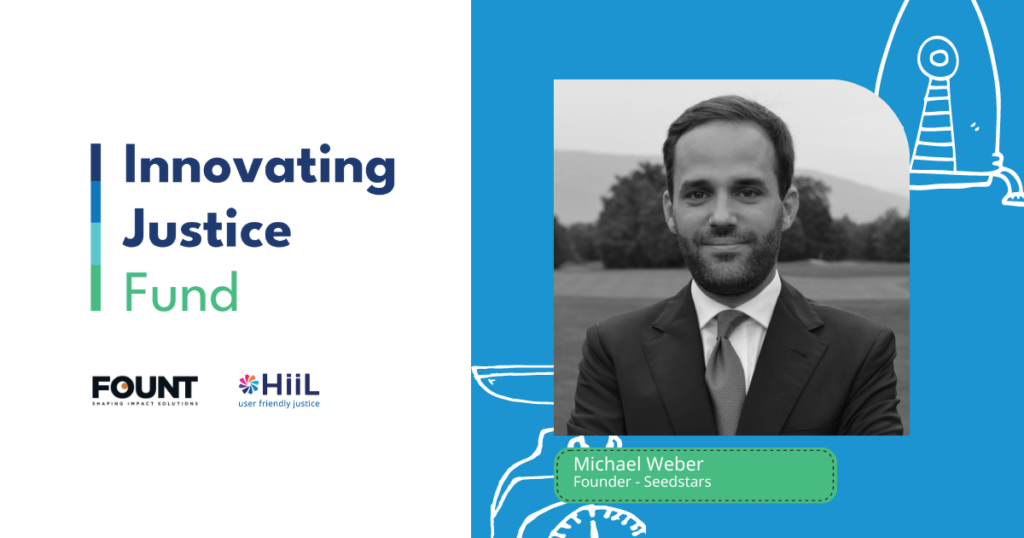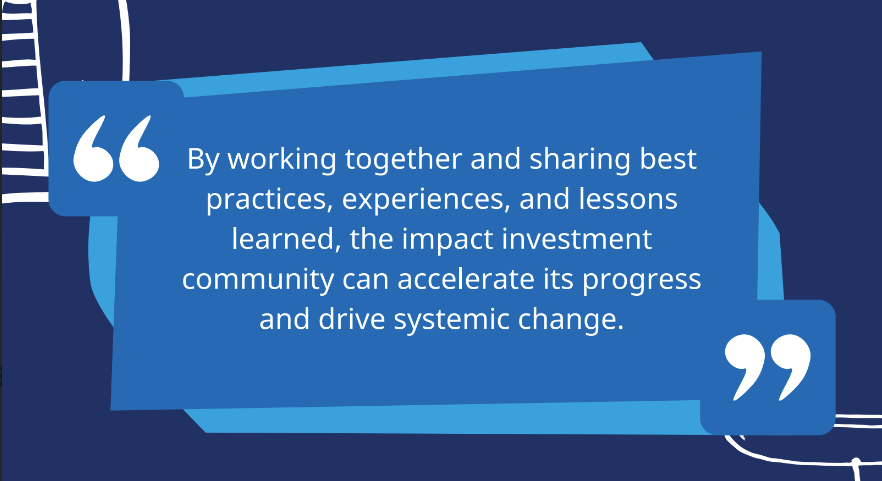Series of articles with investors: impact investment, will it change the world?
Can impact investing really change the world?
We believe that access to justice can effect a change in the world. Justice, or the absence thereof, impacts not only SDG 16 but extends beyond it. Justice directly influences reduced inequalities, gender equality, access to decent jobs, and the opportunity to innovate and create businesses, thereby contributing to economic growth.
Here’s something interesting we discovered while talking to Micheal Weber for this interview: having a fair and accessible justice system actually has a big effect on impact investing itself. To put it in Micheal’s words, “To make impact investing work well, we need governments to create supportive rules and clear ways for impact investors by offering rewards, removing obstacles, and giving them proper guidelines.” And to achieve this, we need justice systems that are easy to approach and focus on people’s needs. After all, impact investing aims to make people’s lives better. Regulating impact investing can also have positive effects on startups, especially those focused on making a positive impact.
But before we reveal more, we invite you to read further the words of Micheal Weber, the Founder of Seedstars whoshares further insights about impact investing, the barriers it’s facing and its potential to create a meaningful change in the world.

What is Impact Investing from your point of view?
From my point of view, impact investment refers to a form of investing that seeks to generate both financial returns and positive social or environmental impacts. It involves intentionally directing capital towards businesses and projects that aim to address pressing global challenges, such as poverty, climate change, education, healthcare, and sustainable development. Impact investors strive to make a measurable difference while also generating a financial return on their investments.
Will it change the world?
As for whether impact investment can change the world, the answer is both yes and no. Impact investment has the potential to bring about significant positive change by mobilising resources and capital towards sustainable and socially beneficial endeavours. By leveraging the power of finance and investment, impact investors can contribute to the development and implementation of innovative solutions that address societal and environmental challenges.
However, it is important to note that impact investment alone cannot single-handedly change the world. While it has the potential to make a difference, it needs to be accompanied by other efforts and strategies. Impact investment can act as a catalyst and provide much-needed financial support, but it requires collaboration and coordination with other stakeholders, including governments, nonprofit organisations, and communities.
So, what needs to be implemented for impact investment to succeed in the mission of changing the world?
For impact investment to succeed and have a transformative effect on a global scale, several changes and implementations are necessary. Firstly, there needs to be a shift in mindset and values within the investment community and society as a whole. This includes recognizing the importance of integrating social and environmental considerations into investment decisions and redefining the concept of success beyond purely financial metrics.
Additionally, transparent impact measurement and reporting frameworks should be established to ensure accountability and credibility in the impact investment sector. Investors and stakeholders need reliable and standardised metrics to assess and compare the social and environmental impacts of different investments accurately.
Moreover, collaboration and knowledge sharing among investors, entrepreneurs, and policymakers are crucial. By working together and sharing best practices, experiences, and lessons learned, the impact investment community can accelerate its progress and drive systemic change.
Finally, supportive policies and regulations are needed to create an enabling environment for impact investment. Governments can play a vital role by implementing incentives, removing barriers, and setting clear guidelines for impact investors. This includes measures such as tax incentives, favourable regulatory frameworks, and the integration of impact investing into public procurement and development strategies.
In conclusion, while impact investment has the potential to change the world by combining financial returns with positive social and environmental impacts, it requires a comprehensive approach. Collaboration, mindset shifts, transparent measurement frameworks, knowledge sharing, and supportive policies are essential elements for impact investment to succeed in its mission of driving sustainable and inclusive development.

Single-handedly, impact investment cannot change the world. Collaboration and knowledge-sharing are crucial for the success of impact investment. Our partner, HiiL,believes in people-centred justice. To achieve this, they conduct data research to identify the most pressing justice issues, engage stakeholders through dialogues to transform justice systems based on people’s needs and foster innovation to create scalable models that provide effective solutions to pressing justice needs. Taking a significant leap forward, we launched the Innovating Justice Fund. Through it, we aim to invest in highly scalable impact startups that have the potential to revolutionise access to justice. In doing so, we work towards completing a full circle by supporting startups able to make an impact on impact investment itself. Are you an impact investor, startup or policy maker? We invite you to collaborate with us today.
About Micheal Weber:

Michael studied business at HEC in Lausanne, Switzerland and proceeded to work in M&A amassing valuable work experience with a focus on medium sized-transactions in Europe. Passionate about technology, the move to launch his own company and sell it a couple of years later was a natural fit. Then, Michael founded Seedstars to impact people’s lives in emerging markets through technology and entrepreneurship.